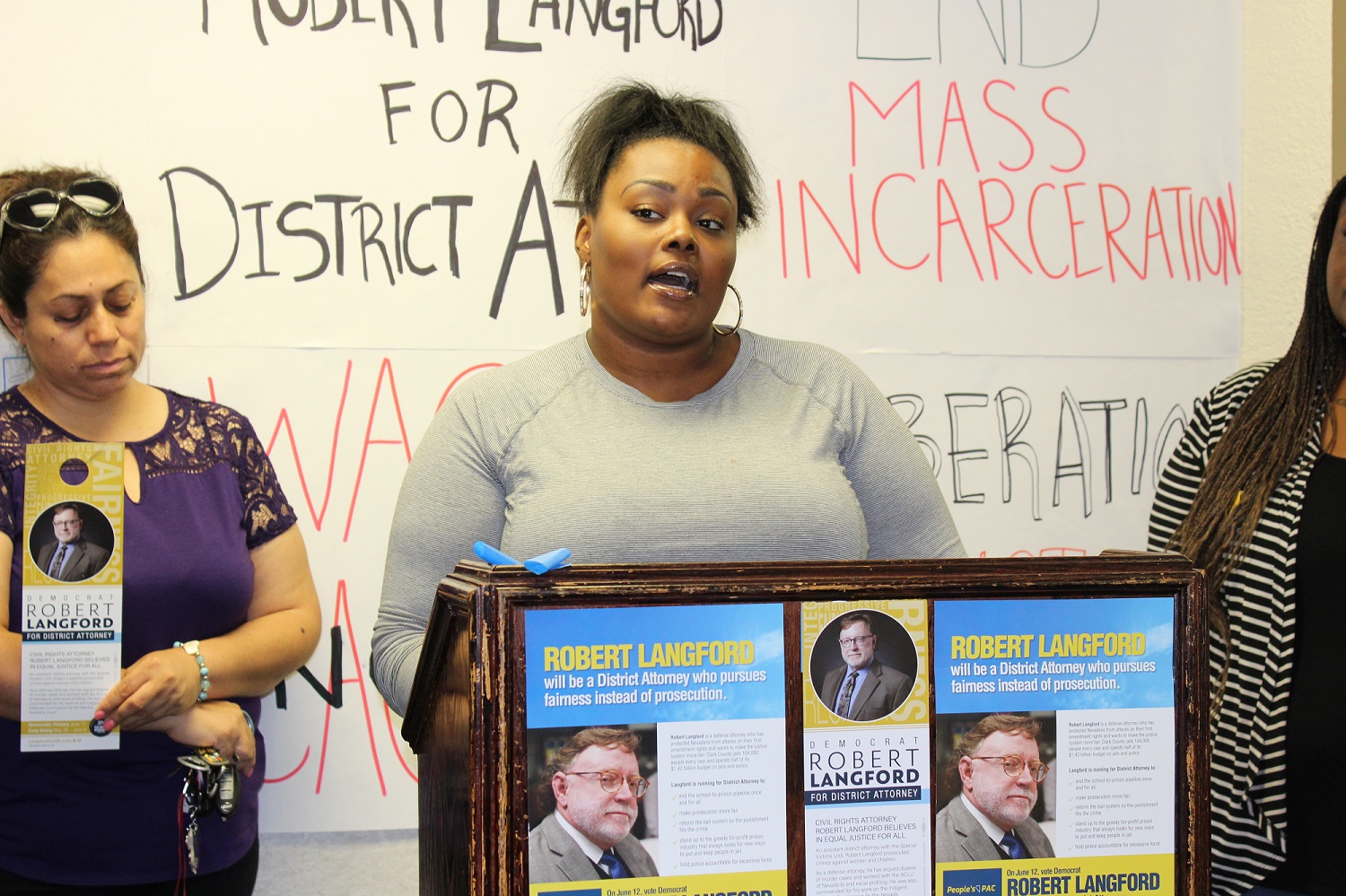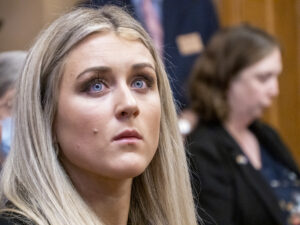In the 1980s, a group of centrists, including a young governor from Arkansas named Bill Clinton, formed the Democratic Leadership Council. Its goal was to shift the party to the right, and away from a declining political left that had suffered Richard Nixon’s landslide victory over George McGovern in 1972, and then found itself no match for a conservative ascendancy that had been punctuated by Ronald Reagan’s victory in 1980.
In the 1980s, like today, there was no identifiable national leader to hold the party together, or for rank-and-file Democrats to rally around or defend.
And like the 1980s, the party is again in the process of reshaping itself.
But this time, instead of moderate-to-conservative, mostly Southern politicians working in tandem with consultants and special interests, an additional force is exerting itself over the direction of the party: Voters. Specifically, progressive ones.
The battle over the party’s future was being waged even before Hillary Clinton’s electoral college defeat, thanks to the Bernie Sanders candidacy. Now efforts to reshape the party’s agenda and principles are being tested, and contested, in primaries around the nation, including here in Nevada.
The Democratic gubernatorial primary between Chris Giunchigliani and Steve Sisolak is the high-profile case in point, each claiming to be the true “progressive” – a campaign focus that would have been almost unthinkable even four or six years ago.
Signs of a party in transition are found further down the ballot as well. In Congressional District 4, Amy Vilela has from the start staked her claim to progressive ground, energetically supporting Medicare for all, criminal justice reform, abolition of U.S. Immigrations and Customs Enforcement (ICE) and generally positioning herself to the left of other candidates, including former congressman and perceived frontrunner Steven Horsford.
But the Nevada race that in some ways may be most reflective of a Democratic Party in transition is the primary for Clark County District Attorney, where Robert Langford is mounting an aggressive progressive challenge to incumbent Steve Wolfson’s more conventional DA campaign. And the consequence of that primary is immediate. No Republican filed for DA, so whoever wins the primary will win the office.
The DA’s race and Trump
Volunteers for a Langford phone bank sit in a conference room sharing a bag of bite-sized York peppermint patties, they begin introducing each other before making calls. The progressive movement is often stereotyped as millennials, a generation of liberal minded youths but the average age of the volunteers in the room is 50, the oldest being 77.
Volunteer Joan Bockholt, 77, is a long-time Democrat who said she supports Langford because she believes the Democratic Party needs to move in a more progressive direction.
“A big part of me thinks that’s why we lost to Trump last time because, I think frankly, Bernie would have beat Trump,” Bockholt said.
Other volunteers in the room nod and hum in agreement.
“Hillary was too much of the same,” Bockholt continued. “She had become more corporate and less of what the Democratic Party originally stood for, which was working people,” Bockholt said, bringing up corporate attacks on organized labor. But despite her reservations about Hillary Clinton, Bockholt voted for her against Trump and in the general election. And while she hopes the Democratic Party embraces a more progressive agenda, she also hopes the Democratic Party will pull together after the primary.
Roger Pharr, 45, would not describe himself as “a hard-core Democratic” voter. Pharr decided to register as a Democrat so he could vote for Langford in the primary, but is disillusioned with the party on a national level and plans to unregister after the election.
“I’ve always thought the Democrats had some large party issues especially at the national level,” Pharr said. “I think the scandal surrounding Hillary and Bernie last year is emblematic of what I think is wrong with the party,” he said, referring to reports that the Democratic National Committee had put its thumb on the scales and was doing the Clinton campaign’s bidding at Sanders’s expense.
Bockholt, too, expressed skepticism about the party’s high-level organization. “There’s a kind of resentment when you contribute to the party,” she said. “I have a feeling it all went to the top contenders rather than being parceled out to local elections.”
Langford’s volunteers are alarmed at what they see as the growing influence the far-right has had on politics – an influence that, they say, demands a more energetic response from the left.
And they also view supporting Langford as a way of opposing Trump, one step in a long road to reining in the influence of Trumpism on politics and society.
“We were recently in Pennsylvania in Pittsburgh to see Frank Lloyd Wright’s house.,” Pharr said. “We stopped at this little park before we got there and we saw this family with a kid riding in one of those electric Jeeps, and the back of the Jeep had bumper stickers on it that said ‘100 percent white,’”
“It was like a white supremacist toddler,” Pharr said.
Progressive infrastructure weighs in
About half the seats of Victory Missionary Baptist Church were filled at the Power of Justice forum last month. It is campaign season, so per usual candidates have been showing up to community events and churches to pitch their platforms and visions to African American voters.
However, this is more than just a venue for stump speeches. This panel, which featured a few candidates on the ballot, was designed to talk about criminal justice reform. While both candidates running for district attorney were invited, only Langford showed up.
It hasn’t been the only event featuring a predominately African American crowd that favored Langford. Color of Change, a national organization that specializes in racial justice, has been organizing Clark County residents specifically to call attention to the district attorney’s race.
A couple nights after last month’s Power of Justice forum, Color of Change gathered a roomful of about 100 people, mostly from the African American community. The goal of the night was to text about 2,500 voters, most of whom were likely black.
Races for district attorney traditionally have a far lower profile than the offices at the top of the ballot. But heightened public attention to mass incarceration, money bail, targeted fines and fees and other perceived criminal justice abuses have brought new attention to DA races around the country.
Stephan Brown is a political organizer for the Working Families Party, a New York based party that is developing a local branch in Nevada. The party was heavily involved in last year’s District Attorney race in Philadelphia won by Larry Krasner, who has already implemented progressive reforms to the criminal justice system in his district.
“Our goal is to get DA candidates who are committed to changing the structure of the criminal justice system and helping people who are otherwise not fairly represented in the criminal justice system,” Brown said.
While organizing and activism by the Color of Change or the Working Families Party reflects part of a growing infrastructure of progressive organizations, the success of Langford’s campaign will also hinge on the support more established Nevada names. And he’s got it. Long-time organizations strongly backing Langford include PLAN Action Fund, the Nevada SEIU, and the electorally powerful Culinary Union.
“It’s like some haven’t gotten word we are a different party”
“The traditional DA was about locking up and prosecuting,” Langford said. “The DA has so much power in the criminal justice system. If you want to have criminal justice reform, it’s next to impossible if you’ve got the hardline, arresting prosecutor. Someone who has the blinders on and only sees their role this way.”
Langford casts Wolfson as in mold of that traditional prosecutor.
And Langford said he doesn’t view Wolfson as a Democrat.
“If he is in the party, he is on the far right of the party,” Langford said.
“That’s hogwash,” Wolfson said. “I’ve been a Democrat since I could vote, and I’ve always voted progressive.”
He added he has advocated for legislative bills to end zero-tolerance policies with the school district in efforts to end the school-to-prison pipeline and has been a leader in bail reform.
Langford knows that historically, candidates across party lines have taken “tough-on-crime” approaches to appease some voters. However, Langford sees that changing.
“I’ve been critical on the Democrats in this state who when it came time to vote for social programs wouldn’t, yet would pass ludicrous laws like jaywalking or sleeping on a bus bench,” he said.
“The Democrats have been just as bad as the Republicans. It’s like some haven’t gotten word we are a different party.”
Langford acknowledge that even if he wins, change will be a challenge.
Clark County “is a classic oligarchy system, call it what it is,” Langford said. “The oligarchs in this town can certainly pony up bucks.
But can they deliver votes?” Langford asked.
Traditionally, in Nevada, the answer often as not has been yes. Langford and progressives will find out next week if that’s still the case.
But the reshaping of the Democratic Party, in Nevada and the nation, seems unlikely to stop, whatever the outcome of this year’s elections.
Our stories may be republished online or in print under Creative Commons license CC BY-NC-ND 4.0. We ask that you edit only for style or to shorten, provide proper attribution and link to our website. AP and Getty images may not be republished. Please see our republishing guidelines for use of any other photos and graphics.




